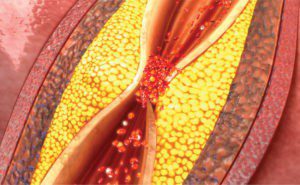Dr. Joseph Freedman MD, MBA


For many people, that have CAD symptoms, they, unfortunately, ignore their signs. Ignoring heart irregularities can be fatal! And if you are experiencing any, the best time to have diagnostic testing is when these indicators are acting up.
What diagnostic tests are available?
In today’s modern medical world, we have so many tests that can pinpoint exactly what’s wrong with our hearts; if only more patients would take advantage of getting tested to know where their risk factors and cardiac health fall, they would give themselves a jump start on living a much healthier life with greater longevity.
An electrocardiogram (EKG or ECG) measures the electrical activity of the heartbeat. If you are experiencing heart symptoms, this is usually the first test that will be administered in an office setting or in the ER. If there are any abnormalities, more testing will follow to eliminate issues, or in many cases, put the pieces together to find out what’s causing your warning signs.
Stress tests are one of the most common methods to detect heart function during exercise and at rest. If you are unable to exercise, there are nuclear stress test options that utilize an injectable contrast to mimic the heart rate elevation of exercise, while you lie or sit down. Either way, a stress test is a staple to discovering the functionality of your heart.
Sometimes stress tests are not enough, and further testing like an angiogram is required to see how the inside (lumen) of the blood vessels, arteries, and heart chambers are working via CT imaging. An angiogram can show blockages and other blood flow abnormalities.
Many times, cardiologists will ask patients to wear a Holter Monitor for anywhere from 24 hours to several days depending on your specific situation and risk factors. The monitor is a portable electrocardiography device that continuously monitors the rhythm and the heart’s activity.
An echocardiogram is an ultrasound of the heart that can detect how the blood is pumping and it can also identify the size and thickness of the valves, chambers, and arteries.
There is also another vital test called a calcium score. This test measures the amount of plaque in your arteries. Although this test is beneficial in diagnosing blockages and treating your cardiac condition, it is not covered by insurance at this time, but the price usually ranges from $75 to $300 and is available at most diagnostic imaging centers.
CAD Symptoms
• Chest Pain and tightness
• Lightheaded
• Dizzy
• Tired/Fatigue
• Shortness of breath
• Anxiety
• Rapid heart rate
• Sweating
• Gray color to the skin
• Arm/Shoulder Pain
• Abnormal heart palpitations
Depending on your diagnosis and indicators, the treatment can vary from merely taking medications to having a non-invasive procedure, or a surgery. The best advice any cardiologist will give you is, “Don’t ignore your symptoms!” If you have any heart irregularities or discomfort, seeking medical attention fast is imperative.
If you believe you are having a heart attack or stroke, call 911! If you’re having initial symptoms that come and go, contact your cardiologist immediately.
Joseph Freedman, M.D., Cardiac Care Group
Dr. Freedman brings many years of experience as a cutting edge cardiologist specializing in the prevention, diagnosis, and treatment of all cardiac disease. He trained at the prestigious Cleveland Clinic, continually ranked #1 in Cardiovascular Care, where he focused on cardiac imaging. He achieved five board certifications in Internal Medicine, Cardiology, Comprehensive Adult ECHO, Nuclear Cardiology and Cardiac CT. During his tenure as the lead noninvasive cardiologist at Florida Medical Center in Ft. Lauderdale, he helped lead the hospital to achieve Level 5 chest pain certification, the highest designation of cardiac excellence.
He has spoken on national health care radio programs and has appeared on local news, highlighting the latest in cardiovascular care. Dr. Freedman prides himself on being an advocate for the patient. Every patient is unique, and he works carefully with leading local and national experts to make sure patients receive the best specialty procedural care possible for that particular case. Dr. Freedman has done research in cardiac MRI studies of the heart, in nuclear scanning, and has participated in the research trials of several leading cholesterol-lowering drugs. Dr. Freedman also has extensive experience in pulmonary hypertension and ran a large clinic in Broward County for these specific and often undiagnosed patients. Dr. Freedman speaks Spanish.
Contact Cardiac Care Group at (239) 574-8463
3208 Chiquita Blvd S., Suite 110, Cape Coral, FL 33914
(239) 574-8463
www.flccg.com
This information is for educational purposes only and is not intended to replace the advice of your doctor or health care provider. We encourage you to discuss with your doctor any questions or concerns you may have.
 Southwest Florida's Health and Wellness Magazine Health and Wellness Articles
Southwest Florida's Health and Wellness Magazine Health and Wellness Articles

